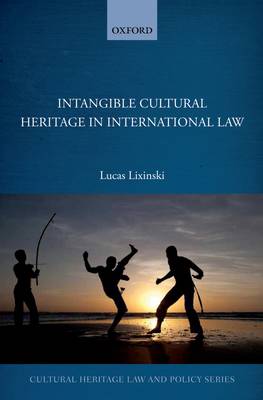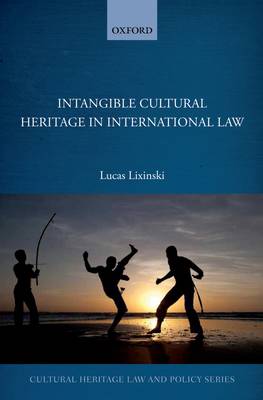
- Retrait gratuit dans votre magasin Club
- 7.000.000 titres dans notre catalogue
- Payer en toute sécurité
- Toujours un magasin près de chez vous
- Retrait gratuit dans votre magasin Club
- 7.000.000 titres dans notre catalogue
- Payer en toute sécurité
- Toujours un magasin près de chez vous
Description
This book offers a comprehensive analysis of the legal issues around intangible cultural heritage (also known as traditional cultural expressions or folklore). It explores both institutional and substantive responses the law offers to the safeguarding of intangible heritage, relying heavily on critiques internal and external to the law. These external critiques primarily come from the disciplines of anthropology and heritage studies. Intangible cultural heritage is safeguarded on three different levels: international, regional, and national. At the international level, the foremost instrument is the specific UNESCO Convention for the Safeguarding of the Intangible Cultural Heritage (2003). At the regional level, initiatives are undertaken both in schemes of political and economic integration, a common thread being that intangible cultural heritage helps promote a common identity for the region, becoming thus a desirable aspect of the integration process. Domestically, responses range from strong constitutional forms of protection to rather weak policy initiatives aimed primarily at attracting foreign aid. Intangible heritage can also be safeguarded via substantive law, and, in this respect, the book looks at the potential and pitfalls of human rights law, intellectual property tools, and contractual approaches. It investigates how the law works and ought to work towards protecting communities, defined as those from where intangible cultural heritage stems, and to whom benefits of its exploitation must return. The book takes the critiques from anthropological and heritage studies into account in order to posit a re-shaped law, offering tools that can be valuable to both scholars and practitioners when understanding how to safeguard intangible heritage.
Spécifications
Parties prenantes
- Auteur(s) :
- Editeur:
Contenu
- Nombre de pages :
- 360
- Langue:
- Anglais
- Collection :
Caractéristiques
- EAN:
- 9780199679508
- Date de parution :
- 24-07-13
- Format:
- Livre relié
- Format numérique:
- Genaaid
- Dimensions :
- 239 mm x 155 mm
- Poids :
- 598 g







